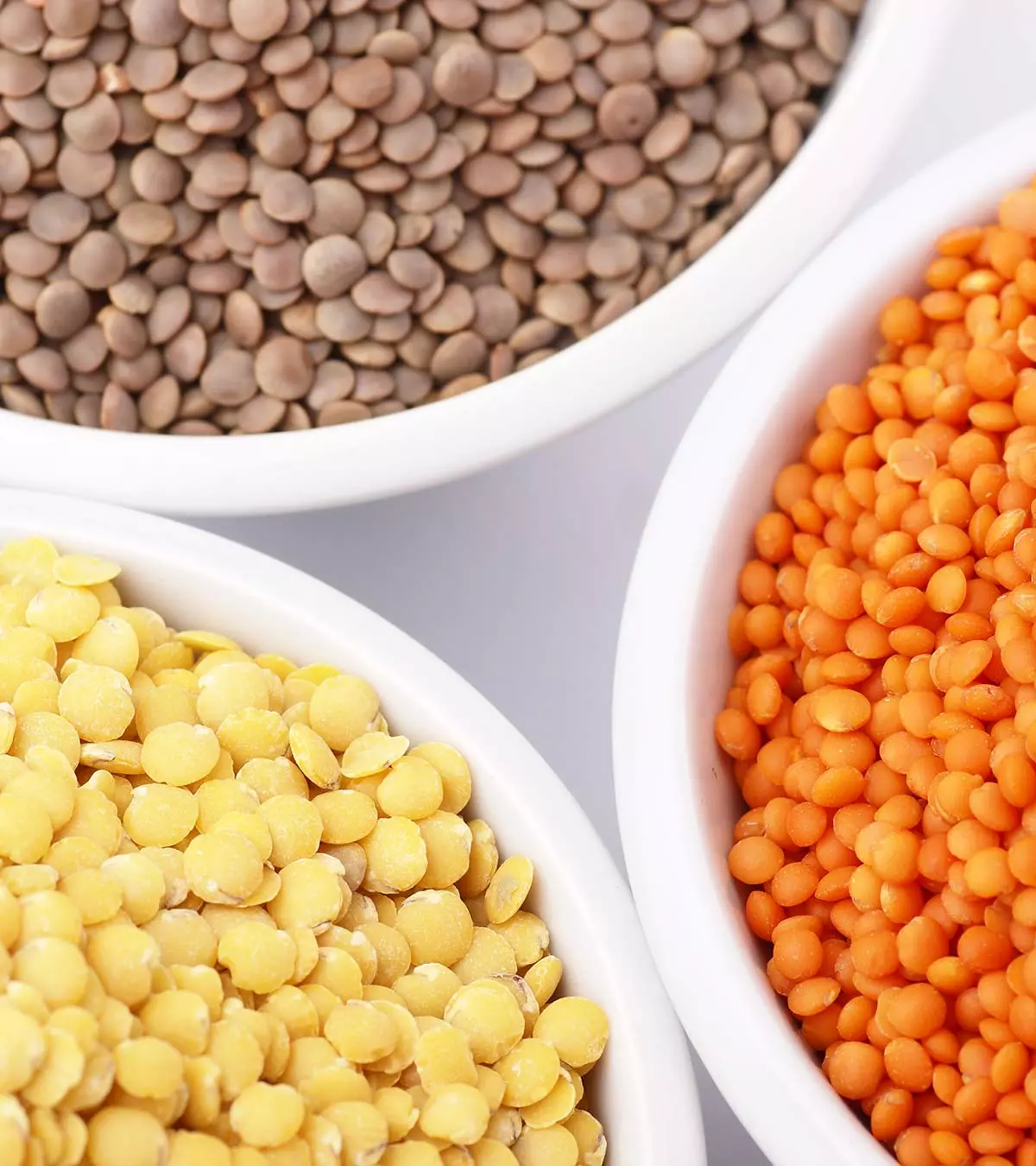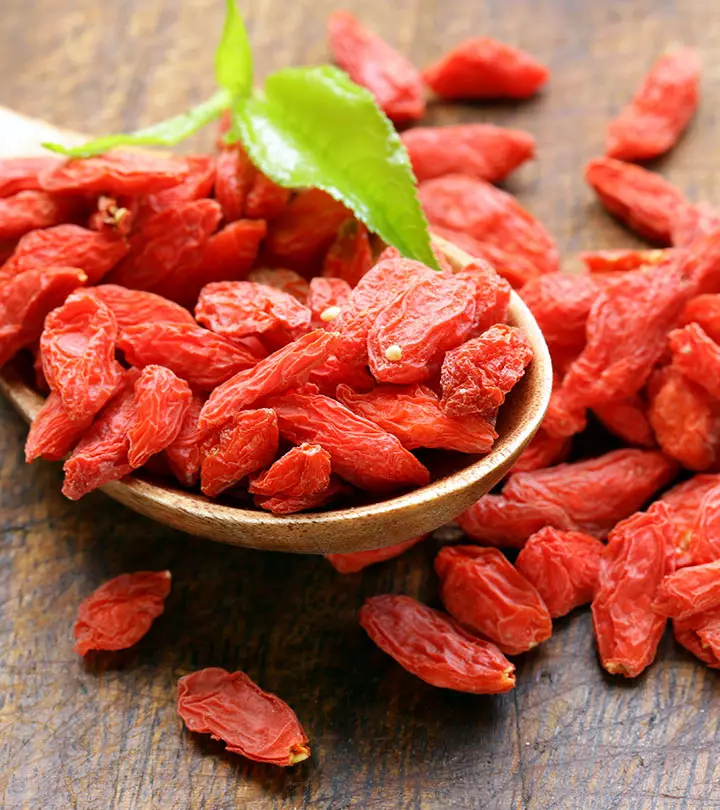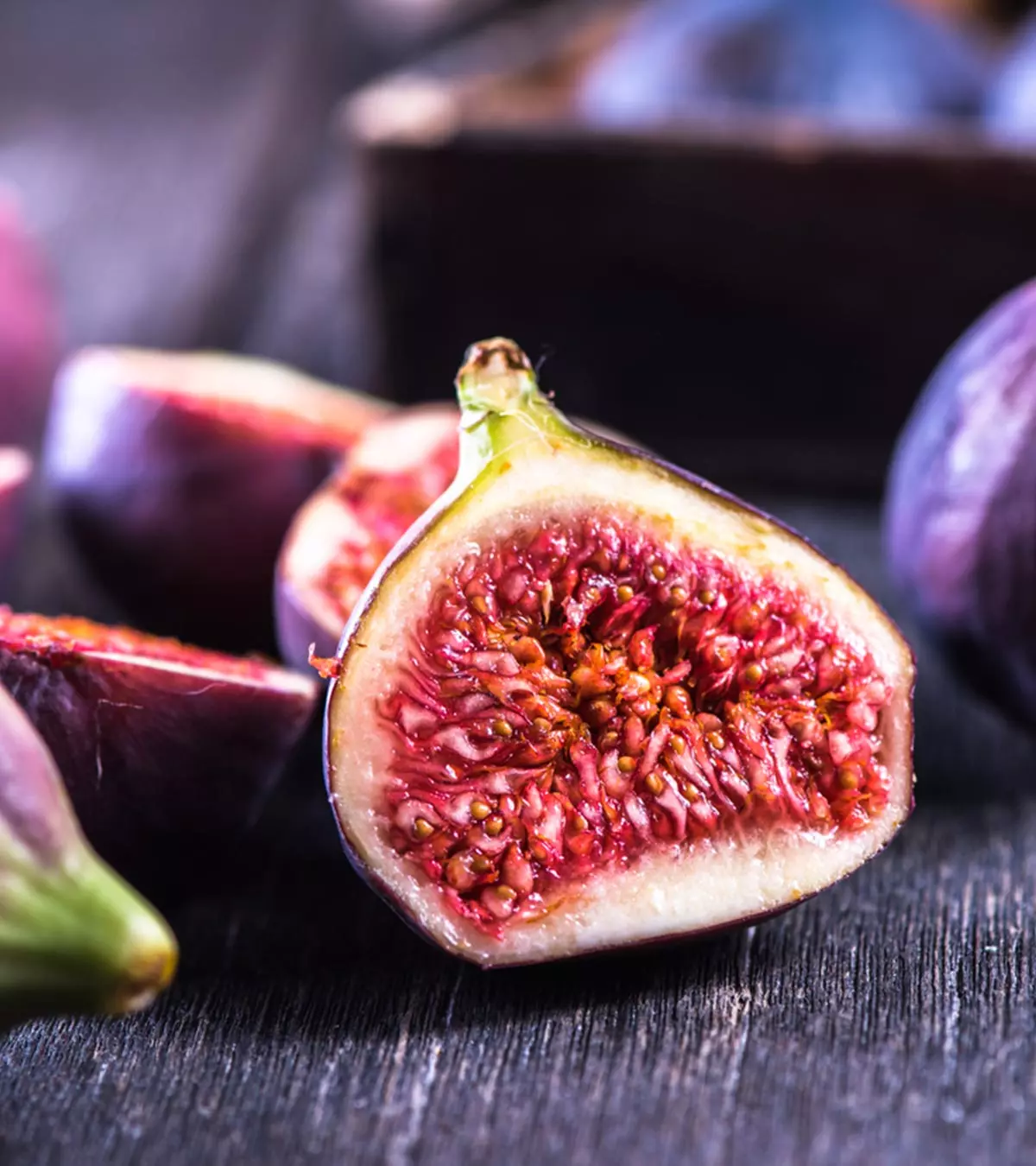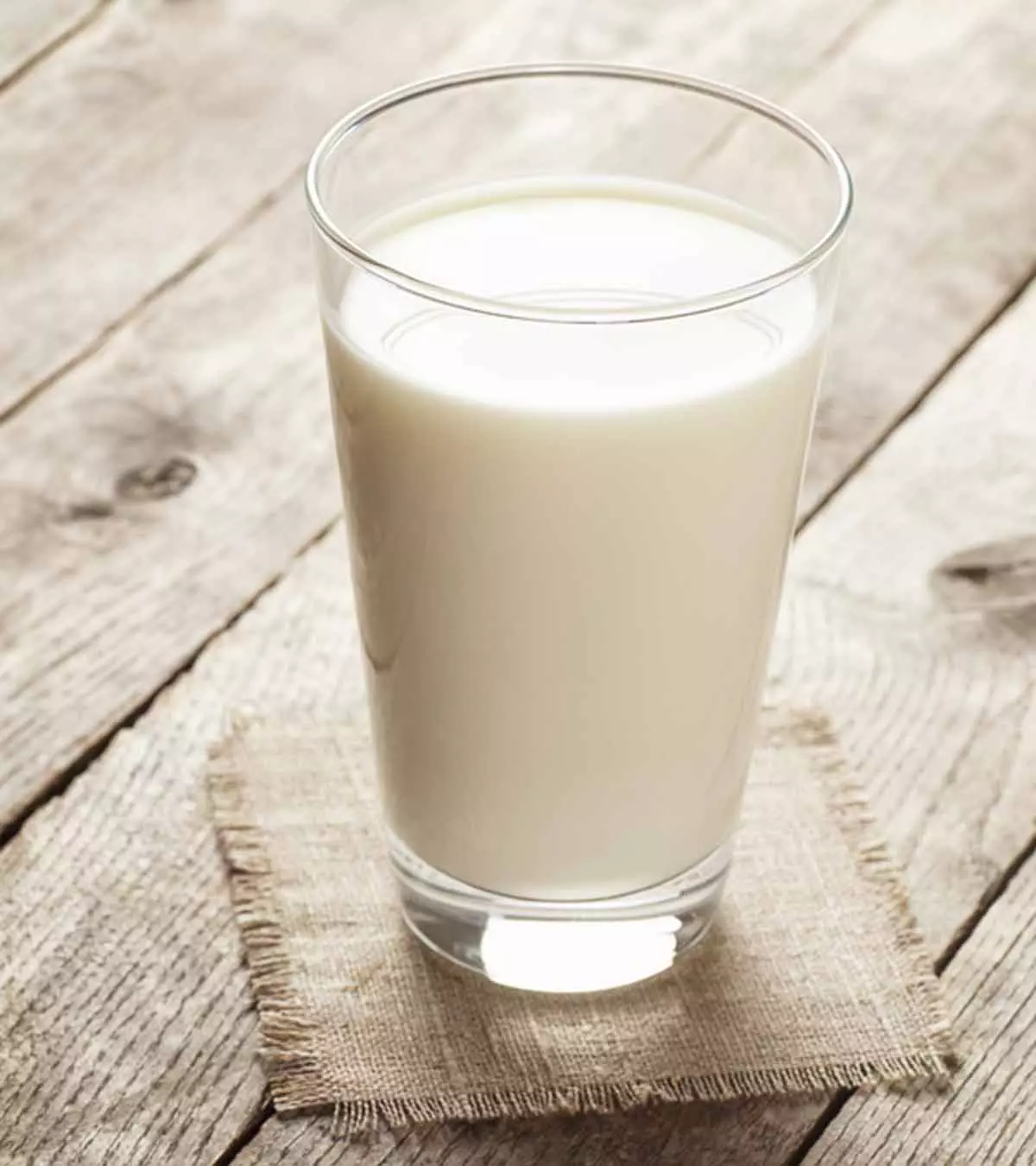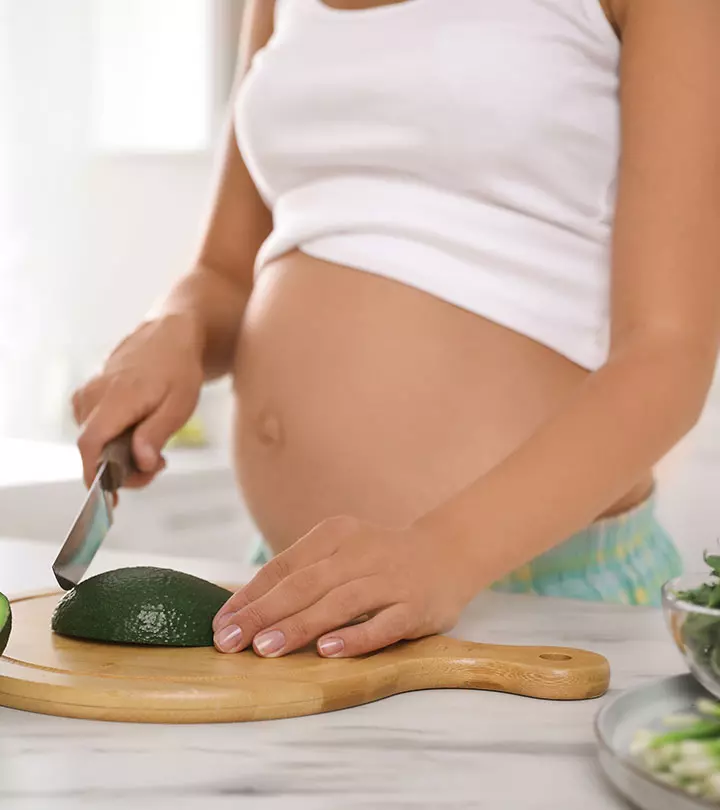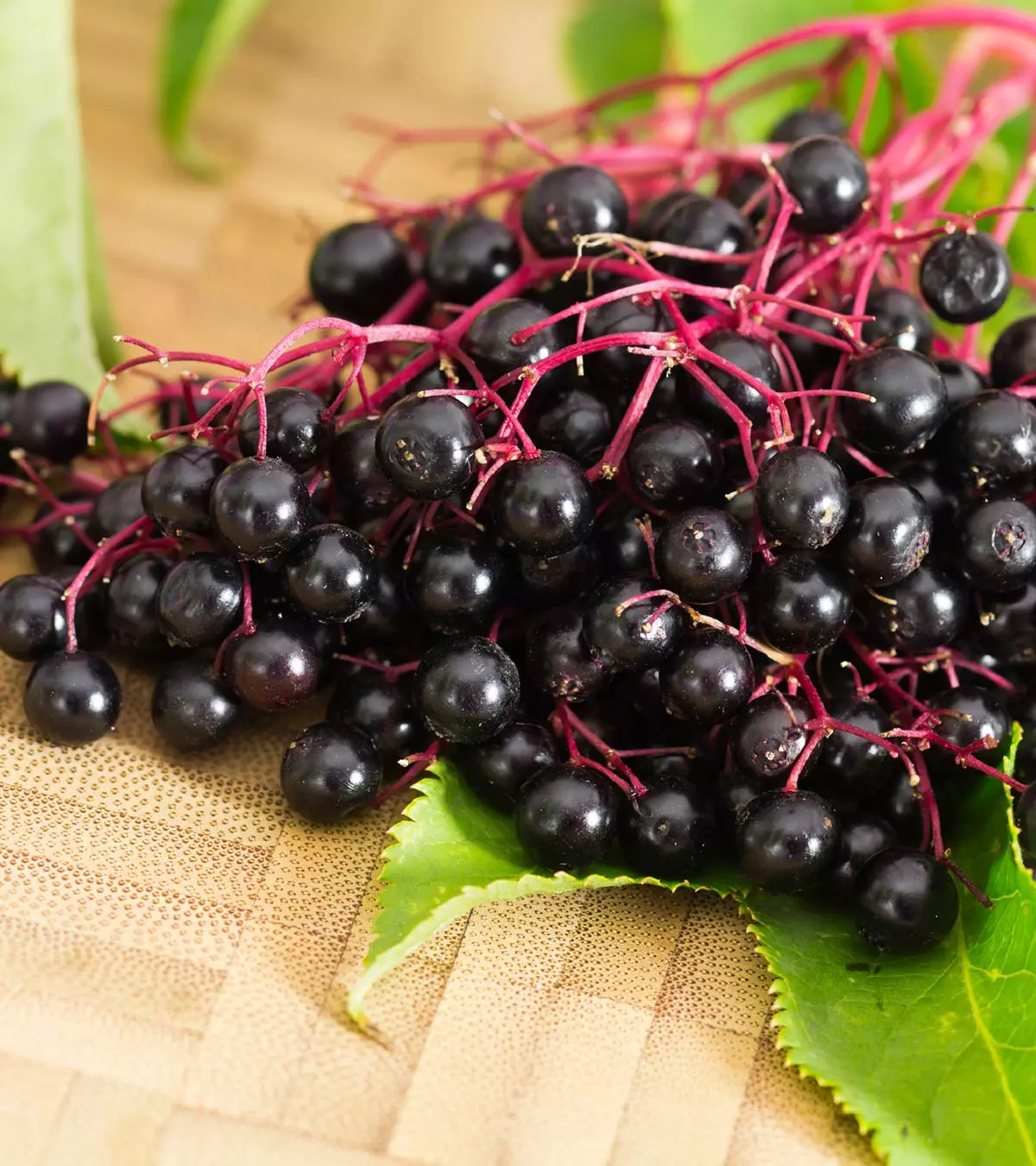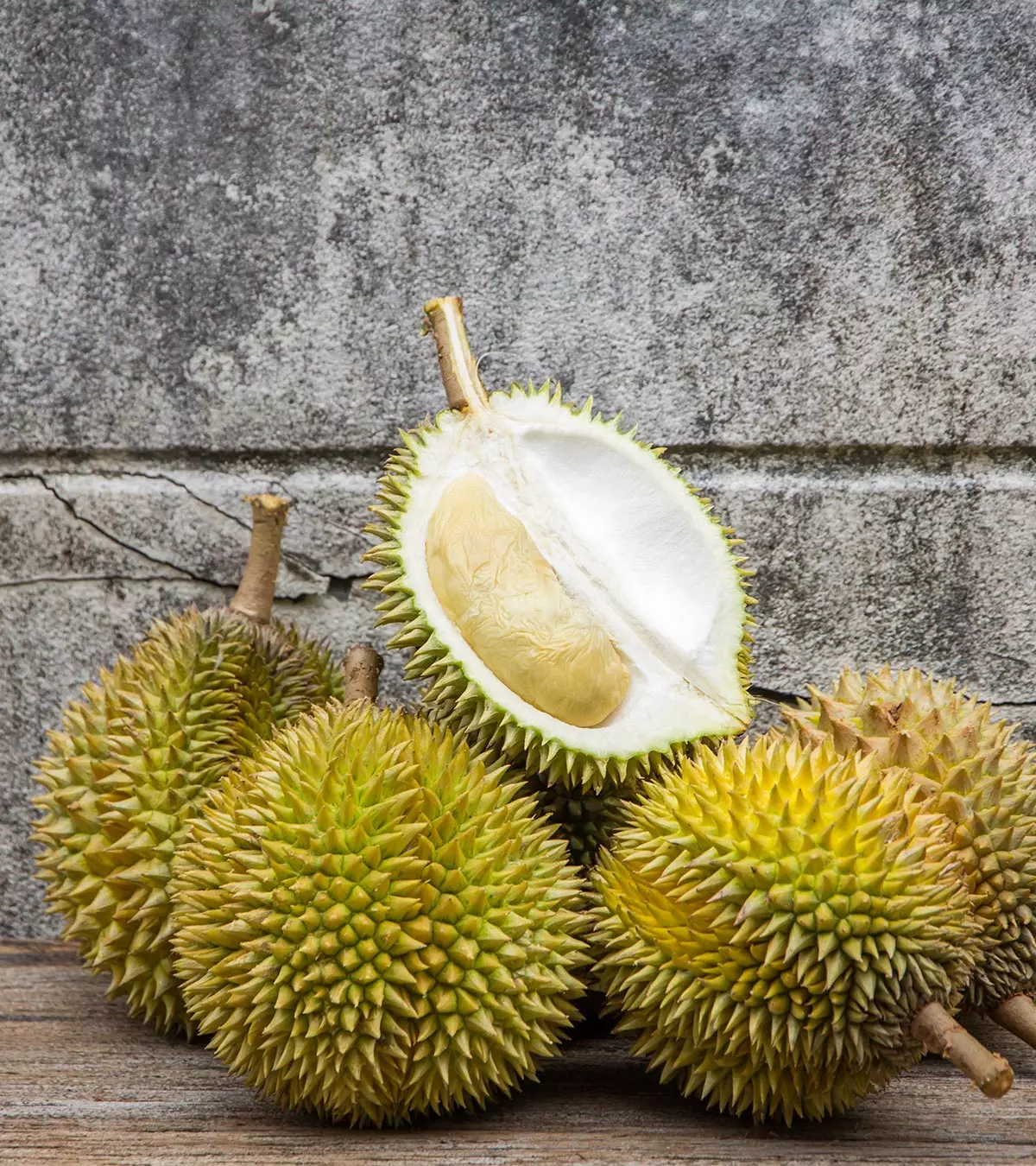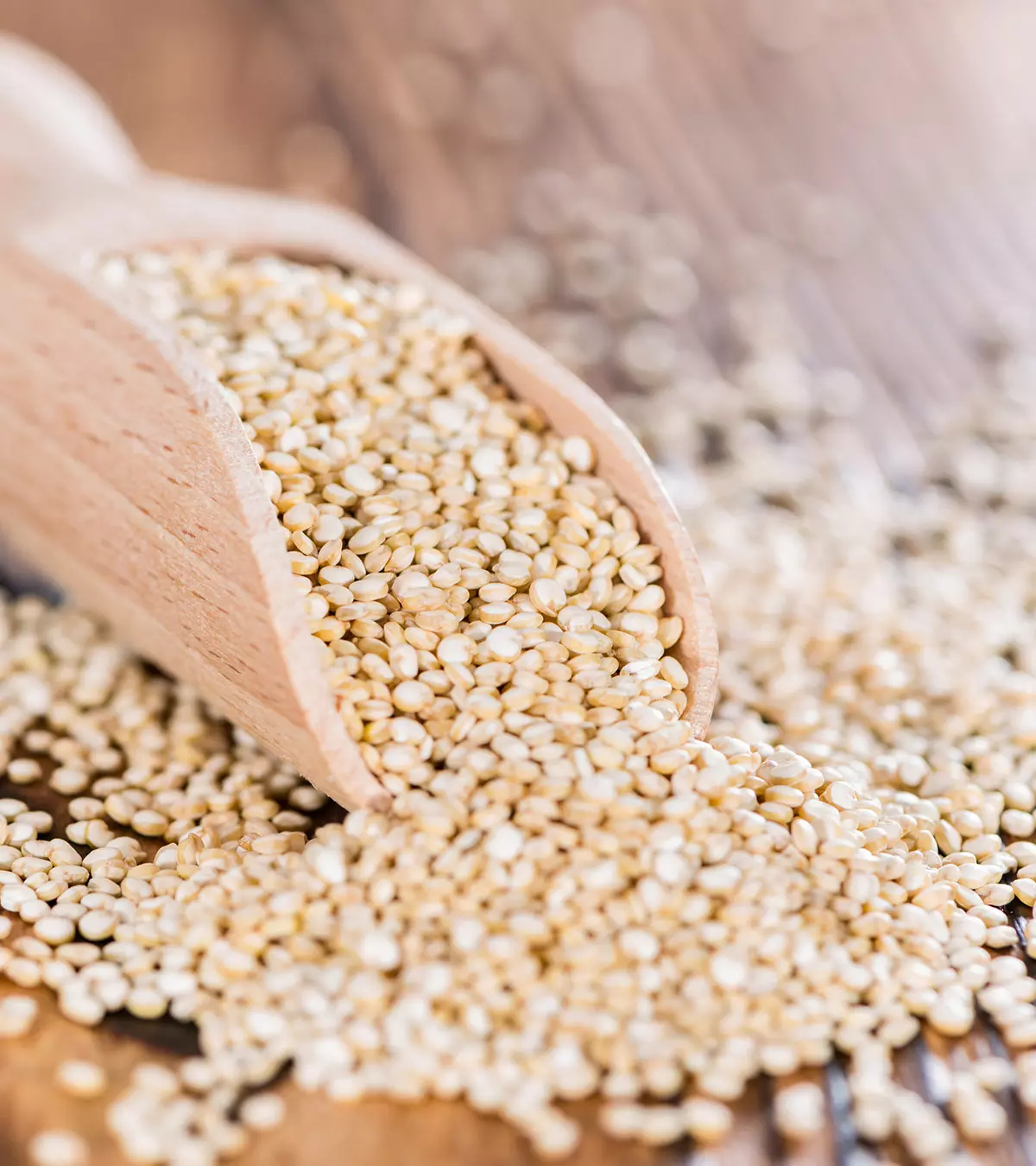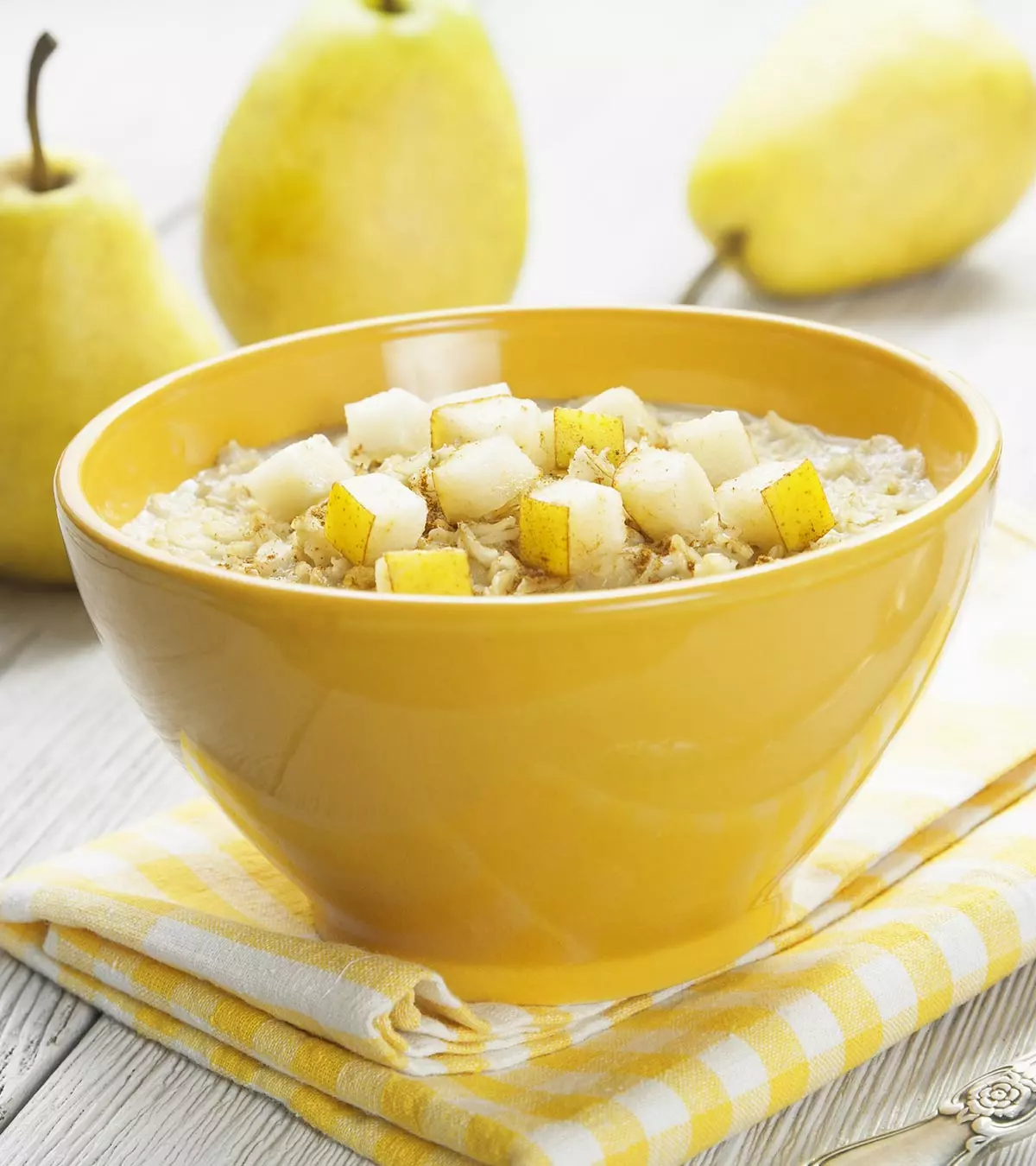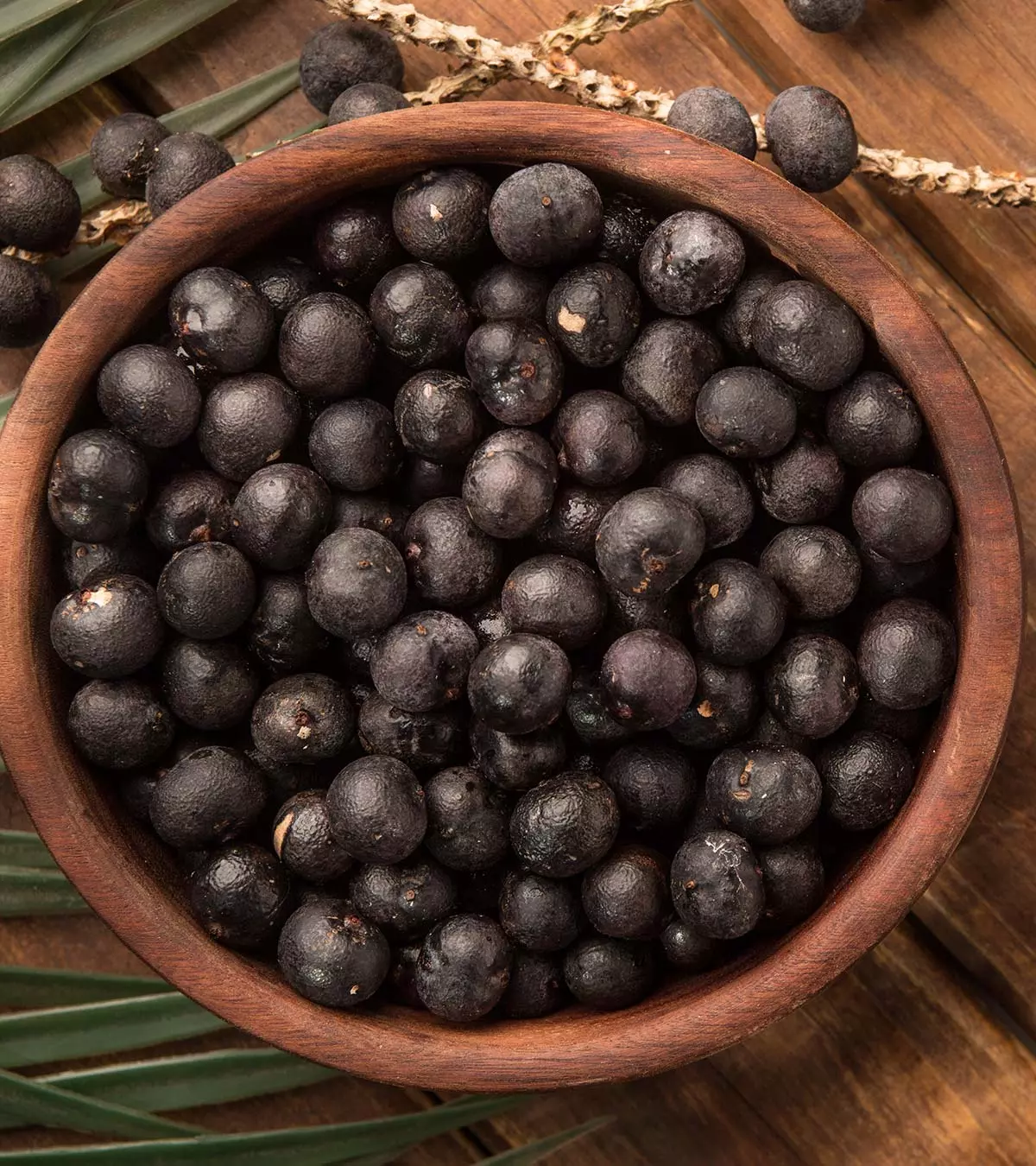
Image: Shutterstock
Consumption of acai berries has several health benefits. Some believe that these berries help treat sexual disorders and reduce weight. However, women might be apprehensive about eating acai berry during pregnancy.
Since these berries are nutrient-dense, one might be tempted to eat them. However, it would be wise to know their effects on pregnancy before consuming them. If you are a berry lover and want to explore more about if you can eat acai berries during pregnancy, read this post for details.
Key Pointers
- Acai berries are rich in vitamins, minerals, and antioxidants that can help the body combat free radicals and reduce the risk of miscarriage.
- Consuming acai berries while pregnant can also promote digestion, improve blood circulation, and boost the immune system.
- If you have gestational diabetes or a berry allergy, it is best to avoid acai berries.
- Acai berries are a versatile ingredient and can be blended into smoothies, coffee, almond milk, and various fruit juices.
What Is Acai Berry?
The grape-like fruit grows on acai palm trees, endemiciLimited to specific geographic areas or environmental conditions to the rainforests of South America. The high nutrient value of acai berry makes it a veritable ‘superfood’ and is considered one of the best fruits to eat during pregnancy. Some positives of consuming the berry include easing arthritisiA disease characterized by painful inflammation and stiffness in the joints , regulating high cholesterol levels, promoting weight loss, and improving skin health (1).
Is Acai Berry Safe During Pregnancy?

Image: Shutterstock
Acai berry, being a nutrient-dense fruit, can be a healthy addition to maternal diet. The amino acids present in it promote fetal growth. The abundance of vital minerals and vitamins like folic acid promote the proper development of your unborn baby while boosting maternal health.
Moreover, the antioxidants in acai berry help your body fight free radicals and lower the risk of abortion or miscarriage. Acai berries also contain omega-3 fatty acids, which can help promote healthy cell development as well as neurodevelopment in the fetus. The fiber-rich food improves digestion and helps overcome pregnancy-induced constipation, and diarrhea. If you are allergic to the fruit or other berries, refrain from eating acai berries during pregnancy.
Health Benefits Of Acai Berry During Pregnancy
In recent years, people in western countries have become more inclined towards consuming acai berries during pregnancy, as they contain healthy nutrients and minerals. The potential health benefits of the fruit are:
1. Improves Blood Circulation
- The presence of anthocyaninsiWater-soluble colored pigments found in plant-based foods that benefit heart health , a typical type of plant antioxidants, in acai berry eliminates the free radicals and protects you from heart diseases.
- The antioxidants help control your blood cholesterol level, and thereby reduce the risk of a stroke, heart attack, or atherosclerosisiA condition where fats and cholesterol deposit in the artery walls obstructing blood flow .
- During pregnancy, you are at higher risk of suffering from hypertension. According to the Centers for Disease Control and Prevention (CDC), an average of 13.0% of women suffer from pregnancy-induced hypertension. The sterolsiLipids that naturally occur in the cell membranes of plants and animals and are essential for cell structure and function of acai berries act as vasodilatorsiMedicines or agents that dilate blood vessels, facilitating an easier flow of blood and help relax your blood vessels, which further lowers your elevated blood pressure levels.
 Did you know?
Did you know?2. Helps Digestion

Image: IStock
- The strong detoxifying effects of acai berry help cleanse your digestive system and excrete all the unwanted toxins that have been building up in your stomach.
- Moreover, the high levels of dietary fiber promote digestion and quicker nutrient absorption from foods.
- The dietary fiber regulates your bowel movement during pregnancy and reduces the chances of constipation and other digestive problems.
- During the first trimester of gestation, most expectant moms suffer from diarrhea that lasts longer. But, by consuming acai berry or other fiber-rich foods, the stool becomes bulkier, and it helps you overcome the condition.
3. Improves Fertility
- Women who wish to conceive should consume acai berries regularly as a natural remedy. The vital nutrients and minerals in the fruit improve fertility rate among women and promote natural conception.
4. Has antioxidant properties
- Acai berry contains healthy natural compounds like procyanidinsiSubstances primarily found in plant-derived foods that are beneficial for overall health and flavonoids, which help your body expel harmful toxins.
- Your body produces free radicalsiUnstable and highly reactive molecules that cause cell damage as by-products of digestion. Exposing your body to excess sunlight or cigarette smoke can trigger violent chemical reactions and impose harmful effects for your baby.
- The damage caused by free radicals can also increase your risk of developing cancer and heart disease.
- The natural antioxidants present in acai berry neutralize the free radicals and eliminate the toxic wastes.
 Quick fact
Quick fact5. Boosts Immune System
The high percentages of Vitamin C and ellagic acidiA compound occurring in various fruits such as berries, which has antioxidant and anti-inflammatory properties in acai berry, make it a popular choice to improve holistic health and as an excellent immune booster, which in turn keeps your unborn baby safe from infections.
6. Energy Booster
Consuming acai berry during pregnancy can boost your energy levels and stamina and help you combat fatigue, lethargy, and exhaustion thereby providing prenatal nutrition.
Whenever you need an energy boost, you can consider eating a handful of acai berries (2).
Risks Of Consuming Acai Berry During Pregnancy

Image: IStock
While there are several positive aspects of consuming acai berry during pregnancy, there exist certain risks associated with the fruit:
1. Allergic Reaction
- If you are allergic to berries, pollen or other fruits, consult the gynecologist before including acai berry in your pregnancy diet to avoid any issues with fetal development.
2. High In Calories
- With a heap of health benefits, most women often tend to over-consume acai berries as juice or dietary supplements.
- But, as the berry contains a high percentage of sugars and calories, it can trigger many negative effects on your health.
- If you suffer from gestational diabetes, avoid acai berry during pregnancy.
Overall it is best to take your obstetric’s suggestion on consumption of acai berry, so that they can relate to your symptoms and other medical and allergic conditions and suggest you accordingly since there is no solid evidence on the same.
Ways To Drink Acai Berry Juice

Image: Shutterstock
Concentrated acai juice has a rather overwhelming flavor. So, here are some different ways in which you can consume the juice:
- Dilute acai juice with plain water, so that you can become habituated with the strong flavor.
- You can mix acai juice with other fruit juices like orange, pomegranate, or blackberry juice.
- You can mix acai berry juice with soy milk or almond milk.
- To cover the potent flavor of acai, try mixing it with your regular coffee.
 Quick tip
Quick tipCan You Eat Acai Bowls During Pregnancy?
You may have an acai bowl during your pregnancy in limited quantities. These bowls have a base of thick acai smoothie, which is topped with different fruits like mango, bananas, and berries. There are also nuts and seeds like chia seeds and almonds used along with nut butter and other toppings like honey, chocolate, or granola. Although this bowl is filled with nutrients, based on the added toppings and additives, they can have a lot of sugar and calories. Hence, it is important to be mindful of the amount you consume. You can also seek advice from your nutritionist on making your acai bowl more healthy. Adding fresh fruits instead of canned, avoiding syrups, using sugar-free granola, etc., maybe some of the ways to make your bowl a healthy delight.
Recipe Using Acai Berries
Here is a simple acai berry recipe that you can include in your pregnancy diet plan:
Acai Berry Smoothie:
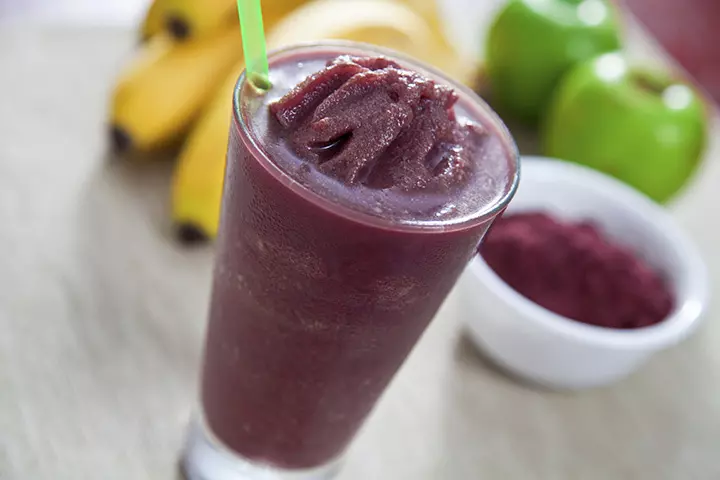
Image: Shutterstock
You Will Need:
- ½ cup acai berry pulp
- 2 cups orange juice
- 11 banana sliced
- Sugar to taste (skip if you have gestational diabetes or other medical concerns since fruits already have enough sugar content in them.
How To:
- Add banana slices, orange juice, acai pulp, and sugar (optional) in a blender.
- Blend the contents until you obtain a smooth shake.
- Serve the smoothie chilled.
Did you consume acai berry while pregnant? Did you experience any side-effects? Did the fruit help increase your nutritional intake during pregnancy? Tell us more about it here!
Frequently Asked Questions
1. Can Acai berry lead to abortion?
Acai contains the phytochemical compound tannins (1), which may increase the risk of abortion/miscarriage if consumed in excess (2).
2. Can I have Acai berry tea every day when pregnant?
Although Acai berry is highly nutritious and offers many health benefits, a lack of clinical evidence is available regarding its safety. Hence, eat Acai berry or drink its tea in moderation, not daily (3).
3. Can Acai berries cause contractions?
According to New York-based registered dietitian and nutrition consultant Jeanette Giacinto, “Acai berries are usually safe during pregnancy and do not cause contractions. However, it is always advisable to consult with an expert, such as a physician or dietitian, before trying any new supplements or diet regimens.”
4. What are the safest ways to consume Acai during pregnancy?
You may consume them as whole berries or pasteurized acai juice. Choose acai products from trusted brands and ensure they are properly processed. And as with any supplement, it’s best to consult your healthcare provider before adding acai to your diet.
Acai berries are known to improve the functioning of the immune system and are a rich source of antioxidants. They are also known to promote the healthy development of the fetus and provide the required nourishment. You could either consume acai berry juice or make them in the form of a smoothie to reap its benefits. But if you have an allergy to it, it is advised that you consult your doctor before adding it to your diet. Since acai berries are high in calories, it is advised that you consume them in moderate amounts.
Infographic: Health Benefits Of Acai Berries For Pregnant Women
The acai berry, known for its medicinal properties, can be a great addition to your pregnancy diet. While an acai berry is safe for consumption in pregnancy, it is best for you to get an allergy check. This infographic highlights the benefits of consuming acai berries during pregnancy.
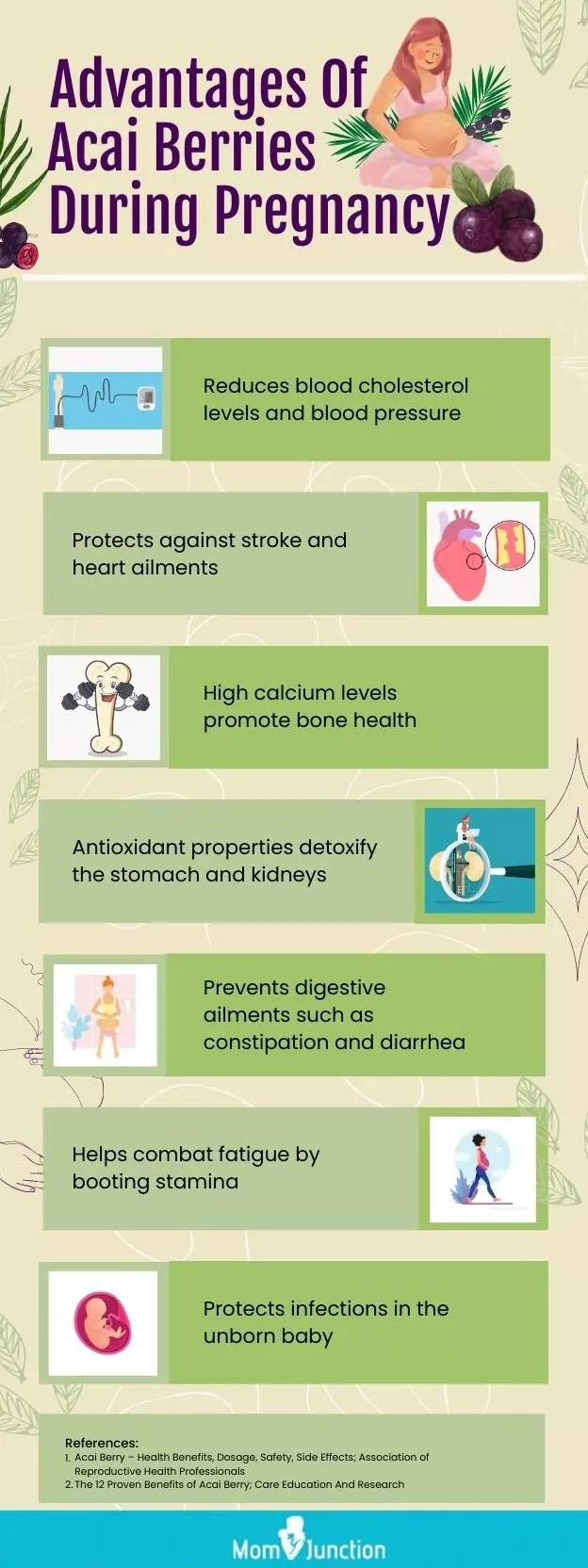
Illustration: Momjunction Design Team
Illustration: How Safe Is Acai Berry During Pregnancy

Image: Dall·E/MomJunction Design Team
References
- Acai Berry: What is it
Properties and Benefits for our Health. - Lyndsay Ammon Avalos et al.; (2014); Volume and Type of Alcohol during Early Pregnancy and the Risk of Miscarriage.
https://www.ncbi.nlm.nih.gov/pmc/articles/PMC4183196/ - Acai.
https://www.nccih.nih.gov/health/acai - All About Acai.
https://www.doc-developpement-durable.org/file/Culture/Arbres-Fruitiers/FICHES_ARBRES/a%C3%A7ai/AllAboutAcai.pdf
Community Experiences
Join the conversation and become a part of our nurturing community! Share your stories, experiences, and insights to connect with fellow parents.
Read full bio of Shivani Sikri
- Jeanette Giacinto is a registered dietitian nutritionist and the founder of Radiant Nutrition, through which she provides nutrition and wellness coaching. Jeanette did her post-graduation in nutrition from Stony Brook University and previously worked as a clinical dietitian at NYU Winthrop Hospital.
 Jeanette Giacinto is a registered dietitian nutritionist and the founder of Radiant Nutrition, through which she provides nutrition and wellness coaching. Jeanette did her post-graduation in nutrition from Stony Brook University and previously worked as a clinical dietitian at NYU Winthrop Hospital.
Jeanette Giacinto is a registered dietitian nutritionist and the founder of Radiant Nutrition, through which she provides nutrition and wellness coaching. Jeanette did her post-graduation in nutrition from Stony Brook University and previously worked as a clinical dietitian at NYU Winthrop Hospital.
Read full bio of Ria Saha
Read full bio of Swati Patwal
Read full bio of Lorraine Teron











